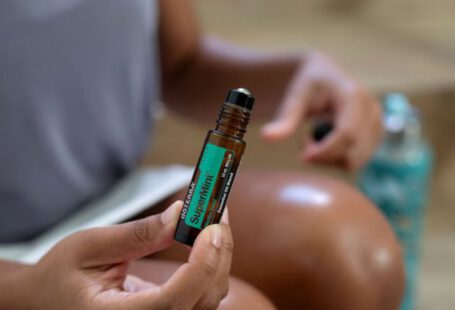Social media has become an integral part of our daily lives, shaping the way we communicate, consume information, and interact with others. With the rise of platforms like Facebook, Instagram, Twitter, and TikTok, the impact of social media on mental health has garnered significant attention. In this digital age, where scrolling through feeds and posting updates have become second nature, it is crucial to examine the role that social media plays in shaping our mental well-being.
**Comparison Culture: The Pressure to Measure Up**
One of the key ways in which social media can impact mental health is through fostering a culture of comparison. Platforms are flooded with carefully curated posts showcasing idealized versions of people’s lives, often leading to feelings of inadequacy and low self-esteem in users. The constant exposure to these highlight reels can create unrealistic expectations and fuel a sense of inadequacy, as individuals compare their own lives to the seemingly perfect images presented online. This comparison culture can contribute to feelings of anxiety, depression, and a distorted perception of reality.
**Validation and Self-Worth: Seeking Approval Online**
Social media platforms are designed to encourage engagement through likes, comments, and shares, which can inadvertently become a source of validation for many users. The pursuit of external validation through social media metrics can lead to a reliance on online approval to boost self-worth. The quest for likes and followers can become all-consuming, driving individuals to tailor their online personas to garner more attention and validation. This constant need for validation can impact self-esteem and mental well-being, as individuals may tie their self-worth to online metrics that fluctuate based on external factors.
**FOMO and the Fear of Missing Out**
The fear of missing out (FOMO) is a common phenomenon exacerbated by social media, where individuals experience anxiety or unease about missing out on social events, experiences, or opportunities that others are partaking in. Social media platforms provide a window into the lives of others, showcasing exciting events, travel experiences, and social gatherings that can trigger feelings of envy and FOMO in users. The curated nature of social media posts can create a distorted view of reality, leading individuals to feel like they are missing out on the seemingly perfect lives of others, contributing to feelings of loneliness and isolation.
**Cyberbullying and Online Harassment**
While social media has the power to connect people from all corners of the globe, it also has a darker side characterized by cyberbullying and online harassment. The anonymity and distance provided by digital platforms can embolden individuals to engage in harmful behaviors, such as sending hurtful messages, spreading rumors, or engaging in targeted harassment. Cyberbullying can have serious consequences on mental health, leading to increased levels of stress, anxiety, and depression in victims. The pervasive nature of social media can make it challenging to escape from online harassment, further exacerbating the negative impact on mental well-being.
**Reclaiming Control: Nurturing a Healthy Relationship with Social Media**
While the potential negative impacts of social media on mental health are significant, it is essential to acknowledge that these platforms are not inherently harmful. By fostering self-awareness and mindfulness in our social media usage, we can take steps to mitigate the negative effects and cultivate a healthier relationship with these digital tools. Setting boundaries around social media usage, curating a positive and diverse online feed, and prioritizing real-world connections can help individuals reclaim control over their digital experiences and protect their mental well-being.
In conclusion, the role that social media plays in shaping our mental health is complex and multifaceted. From comparison culture and validation-seeking behaviors to FOMO and cyberbullying, social media has the power to influence our well-being in profound ways. By recognizing the potential pitfalls of excessive social media usage and taking proactive steps to foster a healthy relationship with these platforms, individuals can harness the positive aspects of social media while safeguarding their mental health. Let us strive to use social media mindfully, prioritizing authenticity, connection, and well-being in our digital interactions.





